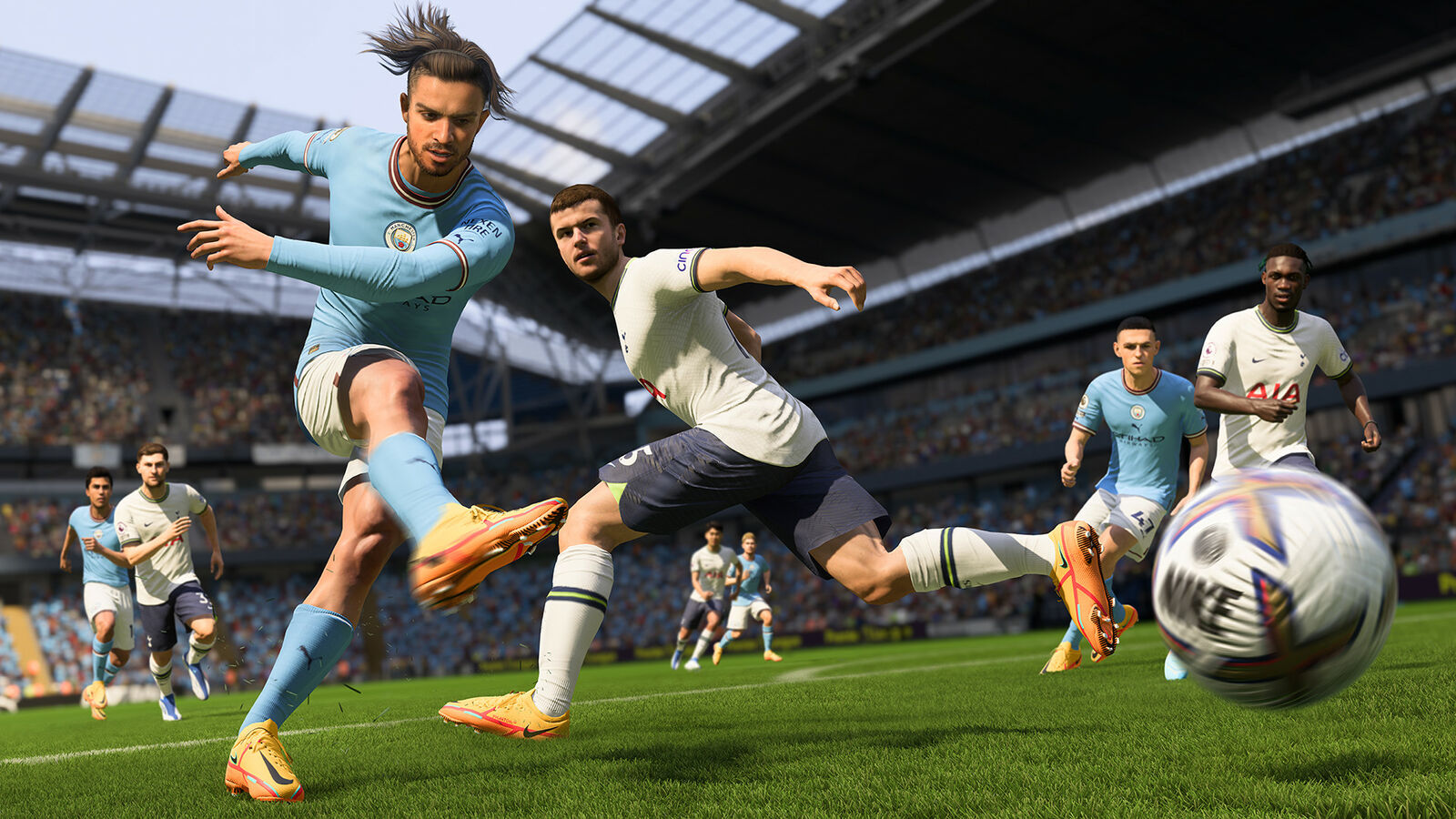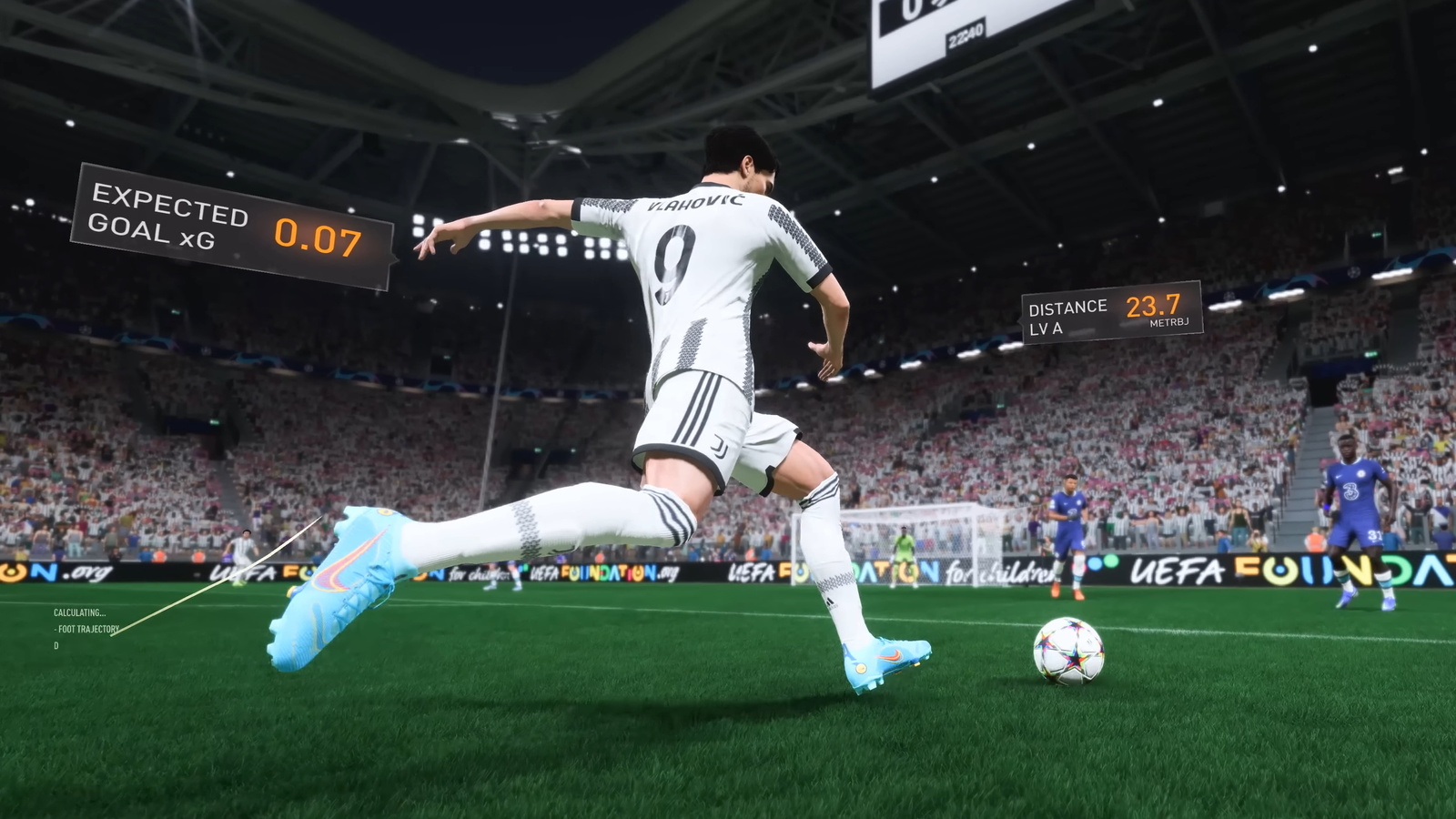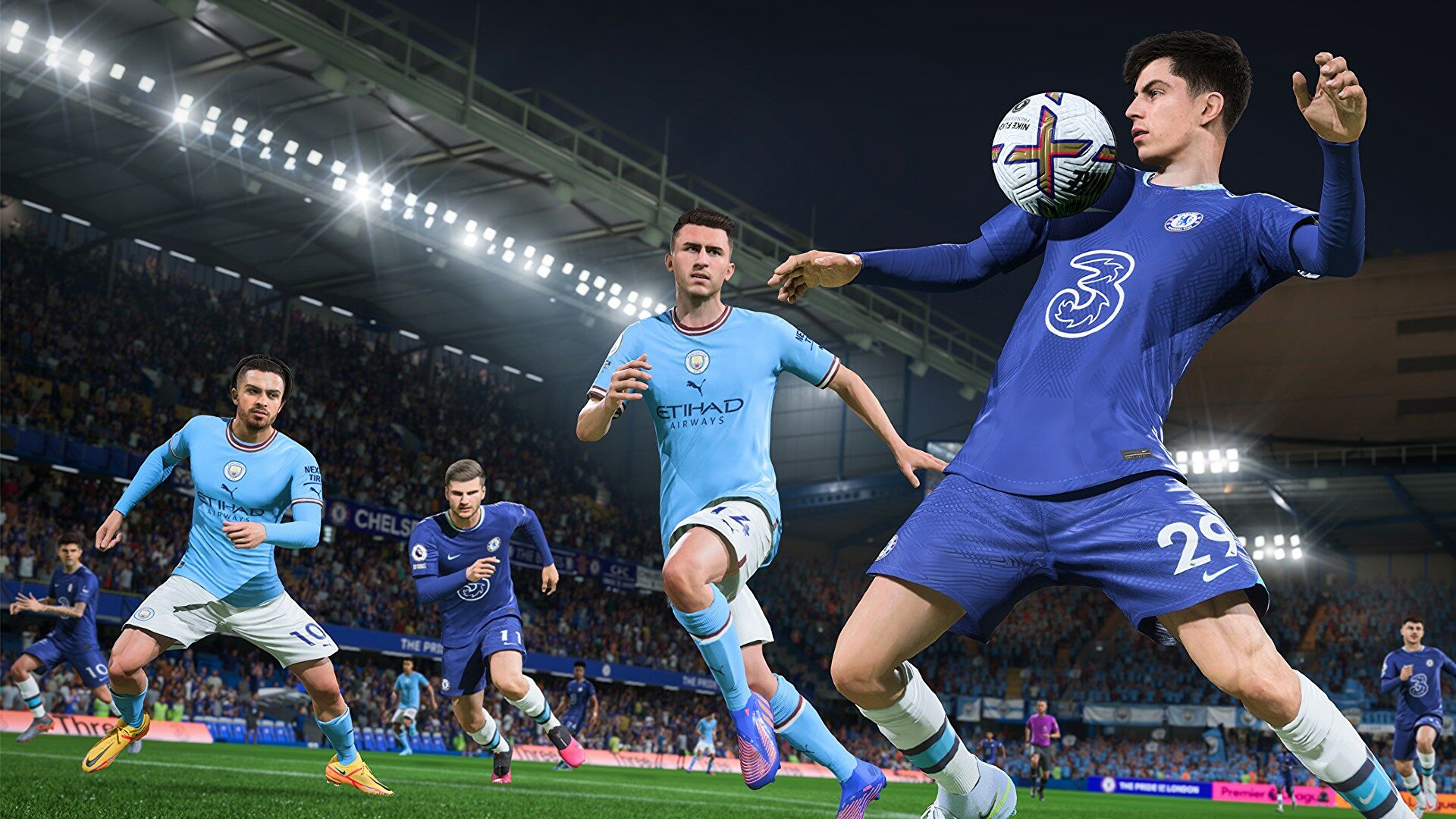FIFA is a gold mine – and that's its biggest problem
Own goal

We were making the same criticisms of FIFA five years ago that you’ll read in reviews of FIFA 23. It’s polished, yes, and it plays a half-decent game of football, I’ve found myself saying in reviews several times over the years, but where’s the innovation? Where’s the creative impetus, or the benefit to playing this one instead of the previous seven?
According to the game’s own marketing materials, the marquee features this year are Hypermotion 2, a revamped version of the mocapped, machine learning-aided animation system, tweaks to how chemistry works in FUT, and the addition of the women’s game. If anyone’s working themselves to the bone on behalf of FIFA, it’s the game’s marketing team.
I can’t tell you how well those new features bear out, because like many PC gamers the game’s utterly broken for me and still doesn’t launch, two weeks after release.
But I’ve been on this ride enough times before - every year since FIFA ‘97 - to make an educated guess that incremental improvements to last year’s incremental improvement to the animation system isn’t the lifeline the franchise has so badly needed for over a decade now.
As tempting as it is to succumb to the perennial Twitter narrative that it’s simply laziness, incompetence or even outright evil that motivates EA Canada and its wider parent company to release such unambitious and nearly identical titles on a yearly basis, in truth, that feels more than a little reductive.
There’s absolutely no doubt that the development team working on FIFA is stacked with talent and full of passion. I’ve met some of them over the years, and all of them have been obsessed with football, and deeply aware of their games’ failings as well as their successes. They’re a far cry from the coven of Shakespearean witches one imagines when on the wrong end of an online thumping, cackling around a cauldron as they script another 94th-minute winner.
In reality, the problem is that FIFA makes too much money.
Get daily insight, inspiration and deals in your inbox
Sign up for breaking news, reviews, opinion, top tech deals, and more.
Ultimate (revenue) stream

Specifically, it makes too much money through FUT, the microtransaction-fuelled online career mode-meets-trading card collecting game that has slowly taken over the franchise like dry rot. Post-launch microtransactions in last year’s game made EA $1.62bn. And it’s been growing year on year by around $100m since 2018.
That places a tremendous incentive on the people who bankroll the franchise’s development to keep things exactly as they are. The current release strategy yields several billion dollars in revenue. What kind of returns might be made on a new game, running on a new engine, that places its focus elsewhere than FUT? Unknown. So why bother?
But by some accounts, making FIFA a better game is even harder than convincing the board to risk cutting off its multi-billion dollar revenue stream. The game code is so old and precarious at this point, it’s nearly impossible to make significant changes or improvements.
That’s certainly the view of Jake Barford, a content creator and member of EA’s design council.
“Here is what I've learned: the game is literally BROKEN”, Barfood tweeted a couple of months before FIFA 23’s release. “The basic foundational code of the game is too old and has been built on top of for too long to be fixed.
“A lot of the people who built the original code of the game no longer work at EA, making it extremely difficult and time-consuming to fix certain things. Because the code of the game is so old and complex, it makes certain tasks that you would think would be easy, extremely difficult.”
If Barford’s correct, that’d certainly explain why the franchise has seemed so stubbornly reluctant to offer meaningful changes since the Rooney-fronted PS3 generation titles.
the game is literally BROKEN.August 1, 2022
The old code

It’s certainly had the same feel and presentational style for many years now. One could easily believe that the nuts, bolts, and rubber bands powering the football are many, many years old now.
And if we extrapolate from there, it’d require an even bigger investment from EA to truly update the series. They’d be making a football game from scratch, cutting away the dead wood, and starting again at code level. All the systems that have been iterated half to death, given somewhere between a 7 and an 8 at review stage and then sold 10 million copies regardless of public sentiment, all gone.
And what would be there in its place? The hope of a better, more convincing game of football? That’d be a nice thing for the marketing team to talk about, but they already make minuscule changes to animations sound like a total overhaul. They don’t need big improvements to shift units.
And let’s not forget, what’s on the line here is a multi-billion dollar revenue stream. If the new, truly updated game was somehow a disaster and failed to find an audience, that’s $1.62bn of FUT money gone. No company’s big enough not to notice that amount of money missing from the balance books.
Some - Barford included - think next year’s release might be the moment EA makes this seismic leap forward, though. The name change to EA Sports FC after over 25 years of FIFA gives some form of mandate to that task. When better to throw out the old and usher in the new?
PES-imism

But let’s not forget about the Konami-published elephant in the room. eFootball 2023, nee eFootball 2022, did something similar to the above plan last year. Losing the PES name after decades, it struck out with a new free-to-play business model and a break from the yearly dev cycle to release a game that was genuinely different. It was, you’ll remember, an unmitigated disaster.
More pertinently still, the problem wasn’t primarily the quality of football. There were bugs and glitches at launch, but have you ever seen two players collide in FIFA in the last decade? It’s like a David Cronenberg movie every time someone puts in a tackle. Par for the course.
No, instead, the problem was a baffling lack of game. For months and months, there were no modes, and precious few teams, just exhibition matches against online or AI opponents, with the same handful of squads. It was a demo disc visiting from a parallel universe. Baffling, and hugely damaging to the franchise.
It won’t have escaped EA’s notice, PES being the franchise’s sole threat for the last decade. And it will have provided an even more persuasive argument at board level: don’t rock the boat.
Just as EA Sports FC is likely to be, FIFA was a victim of its own success. And the only mandate for developing a better football game in and around that multibillion-dollar industry within a franchise will come when we stop buying those stupid little FUT packs. If poor metascores were going to do it, FIFA would have been dead in the water years ago. In recent years the game’s own esports community has been openly and venomously critical of it, and FIFA’s poor quality, unambitious nature, and controversial loot boxes have become part of mainstream gaming culture. None of it budged the business model.
The only way it changes is if we stop spending money on it. We get the EA Sports FC that we deserve.

Ad creative by day, wandering mystic of 90s gaming folklore by moonlight, freelance contributor Phil started writing about games during the late Byzantine Empire era. Since then he’s picked up bylines for The Guardian, Rolling Stone, IGN, USA Today, Eurogamer, PC Gamer, VG247, Edge, Gazetta Dello Sport, Computerbild, Rock Paper Shotgun, Official PlayStation Magazine, Official Xbox Magaine, CVG, Games Master, TrustedReviews, Green Man Gaming, and a few others but he doesn’t want to bore you with too many. Won a GMA once.